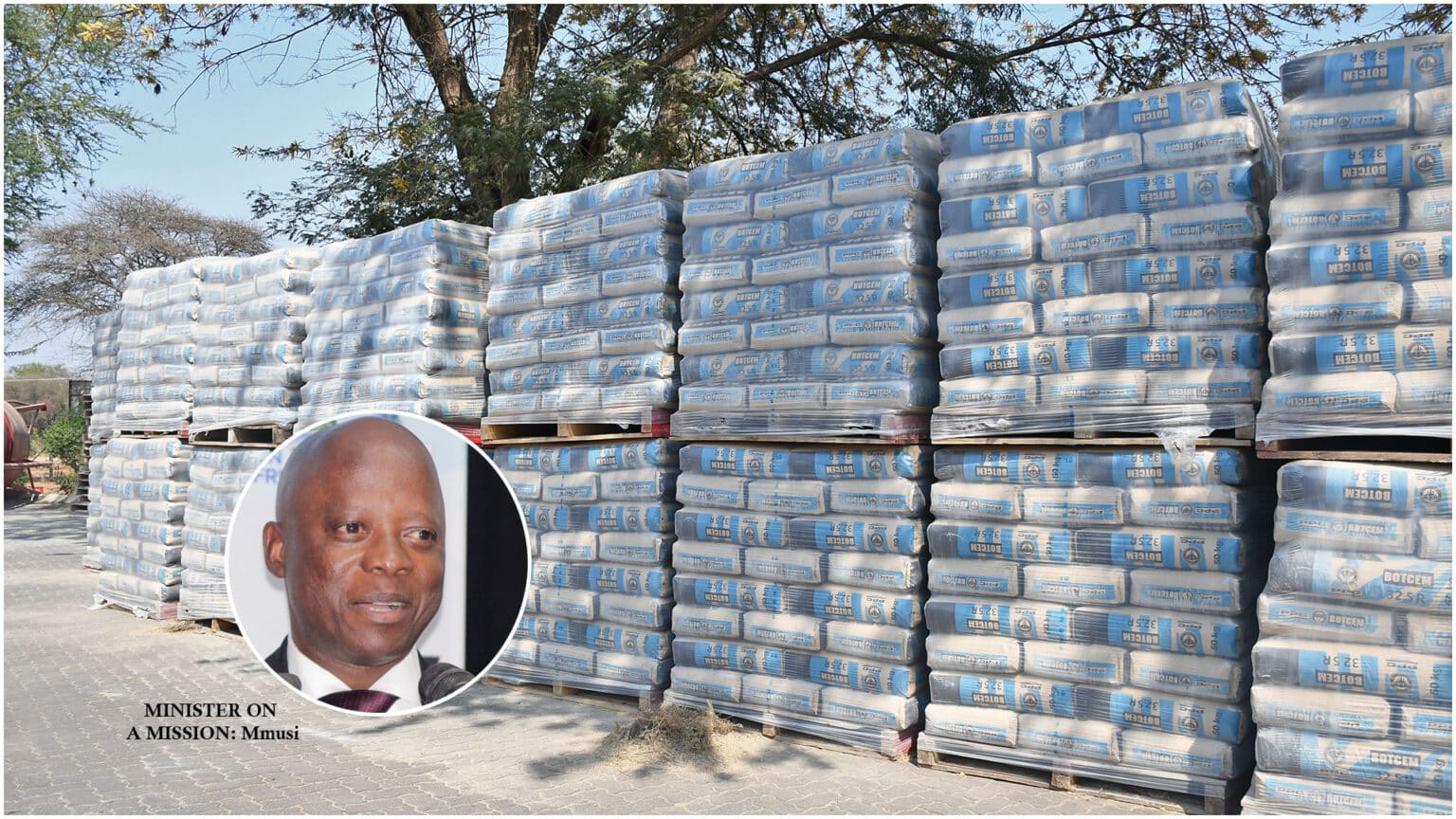Having enforced similar importation bans on fruit, vegetables and school uniform, government now plans to add cement to the mix.
Although not a complete ban, as part of govt’s efforts to diversify the economy by cutting the import bill and ‘Pushing BW’, from 1 October it will be forbidden to bring cement into the country in quantities less than 1, 000kg.
This was revealed by the Minister of Trade and Industry, Mmusi Kgafela, when giving a keynote address at a ‘Metlhala ya Khumo’ stakeholder engagement in Mochudi last Friday.
“Cement will not be imported in 50kg bags; we will only be allowing importation in 1, 000kg while anything less than that will strictly not be allowed. This allows us to participate in the value chain of cement and create employment. This then provides an opportunity to look for partners and participate in this wealth creating initiative,” reasoned Kgafela.
The market demand for cement in Botswana sits at around 620, 000 metric tonnes per annum, the majority of which is imported.
Currently the country has three cement manufacturers: Kago Phepa in Mahalapye, Cheetah Cement in Matsilojoe and Gaborone-based PPC Botswana in Gaborone.
PPC Botswana leads the way with an estimated annual turnover of P5 million.
Following resuscitation in 2022 with an investment of US$40 million, Cheetah Cement’s production capacity stood at 25, 000 tonnes a month.
According to Statistics Botswana, cement imports in 2023 were dominated by Portland Cement (the most common type of cement in general use around the world as a basic ingredient of concrete, mortar, stucco, and non-specialty grout), which accounted for P745.5 million and weighed in at 679 million kilos.
Cement clinkers worth P15.2 million was brought into the country while in-coming white cement cost P2.2 million.
With aluminous cement only 400kg was imported at the value of P45 800 while imports of hydraulic cement (cement that sets and hardens by chemical reaction with water (hydration) and is capable of doing so under water) stood at P860, 742.
In terms of exports, Botswana had little impact in the market, Portland cement leading the way as the only cement to break the one million mark with P1.8 million.
White cement going out of the country raked in P146, 867, cement clinkers added P15, 241 to the coffers, while hydraulic cement sales were worth P34, 406. Aluminous cement, meanwhile, was not exported at all.
“It has not been easy but we will eventually get there. I therefore, appeal to established and aspiring businessmen and women, to take advantage of these policies and programmes aimed at benefiting our local industries. We are working round the clock drawing up and reviewing policies that would help grow our industries, but we cannot do it alone. Businesses should reset and those wanting to expand and venture into export markets should look at how the world is growing and find out what the fastest growing industries are, and what makes them so successful. Then they should fully utilise these policies and programmes to trade not only locally but with the rest of the world,” challenged Kgafela.
Sticking with this path, Botswana has ratified the African Free Trade Area Agreement, (AfCFTA) which gives Batswana an opportunity to trade with over one billion people across the continent.
As a result, Botswana can expand into Africa and enjoy the benefits of this trade agreement.
The ‘Metlhala ya Khumo’ is a government initiative launched in 2008 to bring government departments, state owned enterprises together with businesses or aspiring entrepreneurs in one place with a goal of taking services to the people and also sharing ideas and feedback on trade relations.






